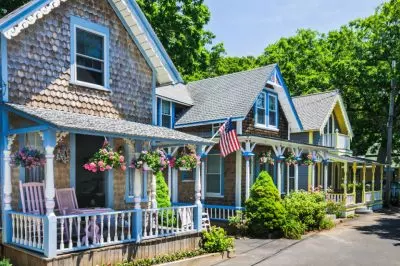 The dispute between the Aquinnah Wampanoag tribe and the local community over a 10,000-square-foot casino project in Martha’s Vineyard may not be resolved soon as a federal judge ruled this week that the tribe would need to secure local permission. Although construction started back in February, the decision will result in further delay for the ambitious plans of the Wampanoag people.
The dispute between the Aquinnah Wampanoag tribe and the local community over a 10,000-square-foot casino project in Martha’s Vineyard may not be resolved soon as a federal judge ruled this week that the tribe would need to secure local permission. Although construction started back in February, the decision will result in further delay for the ambitious plans of the Wampanoag people.
On Wednesday, U.S. District Court Judge Dennis Saylor confirmed that the Wampanoag Tribe of Gay Head (Aquinnah) is free to conduct gambling operations on reserve land. At the same time, it is subject to state and local regulations regarding the construction and operation of a commercial building. This means that the tribe will need to obtain building permits, safety and health-related approvals from local authorities before it can proceed with its plans.
The Aquinnah Wampanoag tribe, which is a federally recognized tribe, wants to build a gambling facility on its land but has been, so far, opposed by the town and the state. The legal dispute between the two sides started several years ago when the town tried to stop the casino project and the suit was followed by an appeal filed by the tribe’s attorneys. The Wampanoag tribe plans to construct an electronic bingo facility that would host 250 games similar to slot machines.
The tribe is based in the town of Aquinnah on the southwest tip of Martha’s Vineyard in Massachusetts and it should be allowed to operate a gambling facility on its land as per federal tribal guidelines.
5-Year Legal Battle over Martha’s Vineyard Casino
 Wednesday’s ruling against the Aquinnah Wampanoag tribe is the latest but not the final development in a legal battle that has lasted for nearly 5 years. In 2013, the tribe proposed a Class II facility to be developed on its property but the town challenged the plans in a federal district court, which ruled in favor of local authorities. The tribe then appealed to the US Court of Appeals and its right to have a gambling facility was confirmed.
Wednesday’s ruling against the Aquinnah Wampanoag tribe is the latest but not the final development in a legal battle that has lasted for nearly 5 years. In 2013, the tribe proposed a Class II facility to be developed on its property but the town challenged the plans in a federal district court, which ruled in favor of local authorities. The tribe then appealed to the US Court of Appeals and its right to have a gambling facility was confirmed.
Work on the casino started February but it halted when the town filed a motion in U.S. District Court in Boston seeking “final judgment” from Judge F. Dennis Saylor. This final judgment issued on Wednesday admitted that the tribe is free to launch gambling operations on reserve land without asking for permission from local officials, as per the Indian Gaming Regulatory Act of 1988. However, Judge Saylor also ruled that the construction of the facility is subject to the same state and local laws and regulations as any other commercial building.
The tribe will now have to seek approval from local officials, including filing applications for construction permits, etc. But the local community remains determined to stop the casino project from moving forward in Martha’s Vineyard. While many residents are concerned about the negative impact gambling may have on the local people, others believe that such a facility would tarnish the image of the posh island.